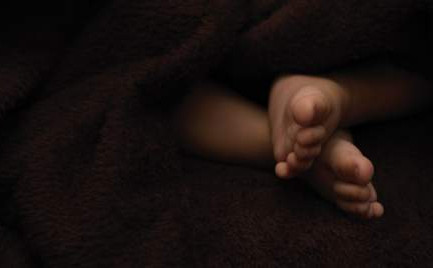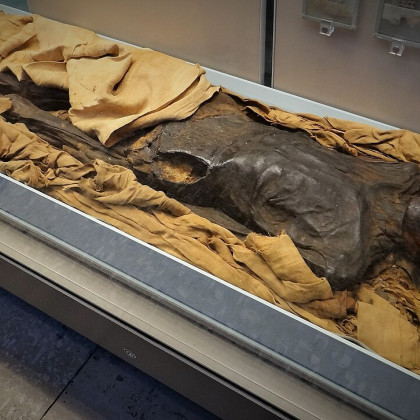A rare group of Nonuplet mothers
1)WHO warns against vaccine hesitancy in South Sudan
The World Health Organization (WHO) is urging doctors in South Sudan to educate the public about the coronavirus vaccines so
that they can make “informed decisions” on whether to get vaccinated. The call comes as a result of some vaccine hesitancy
following the news that 60,000 doses of the Oxford-AstraZeneca jab donated by the African Union had expired on 13 April
before they were used.
Last week, the Ministry of Health said it wouldn’t use the expired vaccines, adding that the “only option available was to
dispose of them”.The Africa Centres for Disease Control and Prevention had said that the vaccines were safe to use.
So far only 4,000 healthcare workers and some elderly people have been vaccinated, according to the latest report by the
country’s Covid-19 Incident Manager despite more doses being available. There is a fear that the 132,000 doses might not be
used up before they expire on 18 July.
2)Nigerian military issues warning to coup plotters
The Nigerian military has dismissed a suggestion that it should take over the running of the country given the current
security problems. "The Military High Command wishes to use this opportunity to warn misguided politicians who nurse the
inordinate ambition to rule this country outside the ballot box to banish such thoughts as the military under the current
leadership remain resolute in the defence of Nigeria’s democracy and its growth," spokesperson Brig-Gen Onyema Nwachukwu
said in a statement.
He was responding to a comment on television on Sunday made by senior lawyer Robert Clarke that Nigeria was "on the brink of
collapse" suggesting that the army should take charge of the country's states. Brig-Gen Nwachukwu warned that such action
would be against the law saying it was "treasonable to even contemplate this illegality. The full wrath of the law will be
brought to bear on any personnel found to collude with people having such agenda."
Other public figures, including the Nobel laureate Wole Soyinka, have suggested that President Muhammadu Buhari should at
least seek external help. In recent months, the country has been beset by security problems, including the kidnapping of
students and violence between herders and settled farmers.
3) Egypt court rejects bid for Suez Canal ship release
A court in Egypt has ruled that the Ever Given - the massive container vessel that blocked the Suez Canal in March -
will continue to be held as a dispute over compensation shows no sign of being resolved. The grounding of the Ever Given for
six days in March captured the world's attention, but the story is far from over. The Suez Canal Authority is seeking almost
$1 billion (£720 million) in compensation from the Japanese owner of the vessel.
The ship is currently impounded in a lake between two stretches of the canal. An appeal by the owner for the vessel to be
released has been rejected for now. The Canal Authority has yet to publish the findings of its investigation into the cause
of the incident. It took almost a week for specialist rescue teams to dislodge the Ever Given - as much of the world online
offered unwanted advice - but returning it to the freedom of the high seas may take a lot longer.
4) Ethiopia appoints new interim governor of Tigray state
The Ethiopian government has appointed Dr Abraham Belay as chief executive of the interim administration of the northern
Tigray regional state. Dr Abraham is the current president of the ruling Prosperity Party (PP) and also serves as minister
of innovation and technology. He replaces Dr Mulu Nega, who took up the post on 15 November 2020 shortly after a military
operation in the Tigray region to oust officials from the former ruling Tigray People's Liberation Front (TPLF).
The TPLF has since been designated a terrorist organisation. Some of its key leaders and forces have been arrested, while
others are said to be on the run as an insurgency persists in remote parts of Tigray. Dr Abraham's appointment comes as the
federal government plans to launch an inclusive national dialogue to end the political and humanitarian crisis in the
troubled region. The authorities have also pledged to increase security and humanitarian access as allegations of attacks
linked to federal and Eritrean forces continue to be reported
5)EU cancels plan to send Ethiopia election observers
The European Union has cancelled its observer mission for Ethiopia's June elections citing "lack of agreement on key
parameters". The EU's High Representative on Foreign Affairs Josep Borrell said standard requirements such as the mission's
independence and e importing of communication systems for their security had been denied.
"It is disappointing that the EU has not received the assurances necessary to extend to the Ethiopian people one of its most
visible signs of support for their quest for democracy," he wrote in a statement shared online:
The EU urged the Ethiopian government to carry out free and fair elections.
It said it had supported the electoral board with €20m .
Ethiopia is set to hold elections on 5 June. The polls were delayed because of the coronavirus pandemic.
Loung
Malian woman gives birth to nine babies
A Malian woman has given birth to nine babies, joining a small group of mothers of nonuplets, according to Mali’s government.
The pregnancy of Halima Cisse, 25, fascinated the country and attracted the attention of its leaders. When doctors in March
said Cisse needed specialist care, authorities flew her to Morocco, where on Tuesday she gave birth to five girls and four
boys by caesarean section.
“The newborns (five girls and four boys) and the mother are all doing well,” Mali’s health minister Fanta Siby said in a
statement, adding they are due to return home in several weeks’ time. Siby offered her congratulations to “the medical teams
of Mali and Morocco, whose professionalism is at the origin of the happy outcome of this pregnancy”.
Cisse was expected to give birth to septuplets (seven babies), according to ultrasounds conducted in Morocco and Mali that
missed two of the babies. Cases of women successfully carrying septuplets to term are rare – and nonuplets even rarer.
Moroccan authorities have yet to confirm what would be an extremely rare case. Health ministry spokesman Rachid Koudhari
said he had no knowledge of such a multiple birth having taken place in one of the country’s hospitals, according to the AFP
news agency.
Nigeria kidnappers free 27 college students
The remaining 27 students abducted from a forestry college in the northern Nigerian state of Kaduna have been freed.
They were among 39 students seized from their dormitories by armed criminal gangs in March. A number of them had been
released last month. The authorities say the victims freed on Wednesday will be medically examined after suffering the
longest stay in captivity since armed criminal gangs intensified mass kidnappings of students for ransom in recent months.
The release of the abducted students came just a day after their distraught families protested outside the Nigerian
parliament in the capital Abuja demanding more action from the authorities to rescue the captives.
The college students were held for nearly two months by the gunmen. The release will be a huge relief for the victims and
their families. A prominent Islamic cleric who has been spearheading negotiation efforts with various armed criminal gangs
Sheikh Ahmad Gumi told the BBC that he and former Nigerian President Olusegun Obasanjo intervened to secure the release of
the college students. It’s not clear whether a ransom has been paid. Nigeria has seen a sharp rise of mass abductions of
students since December with more than 800 taken as security situation continues to deteriorate across Nigeria. Most of them
have been released after negotiations.











Dodaj komentar
Komentiraj